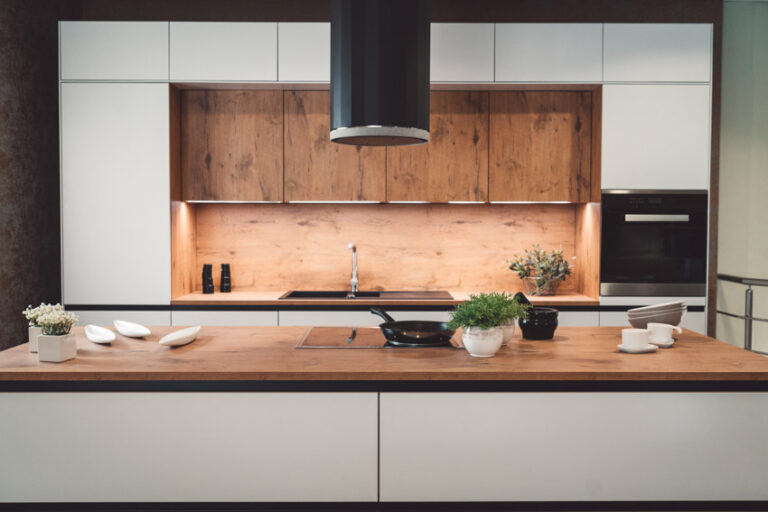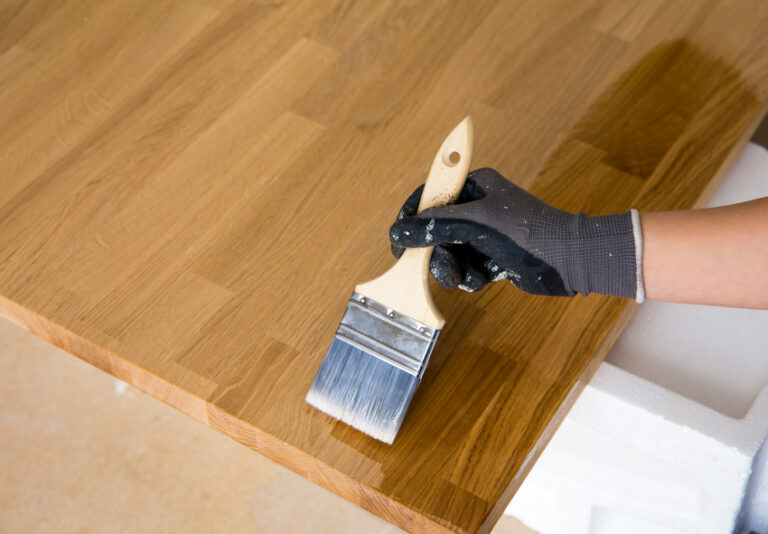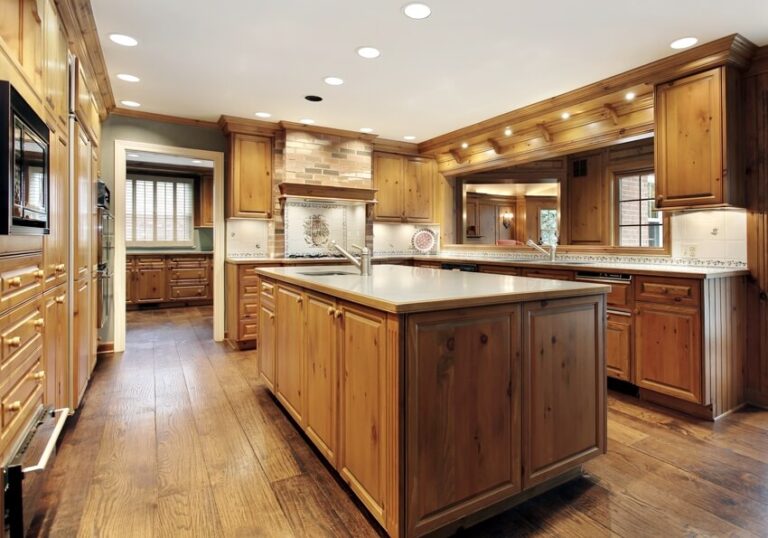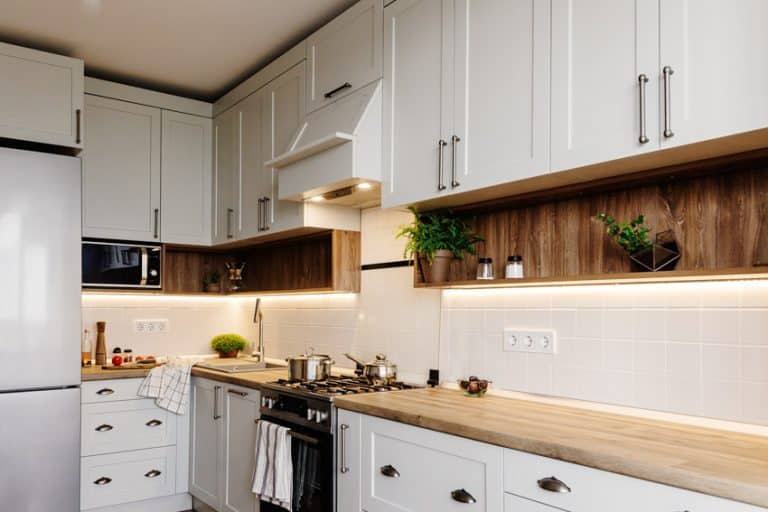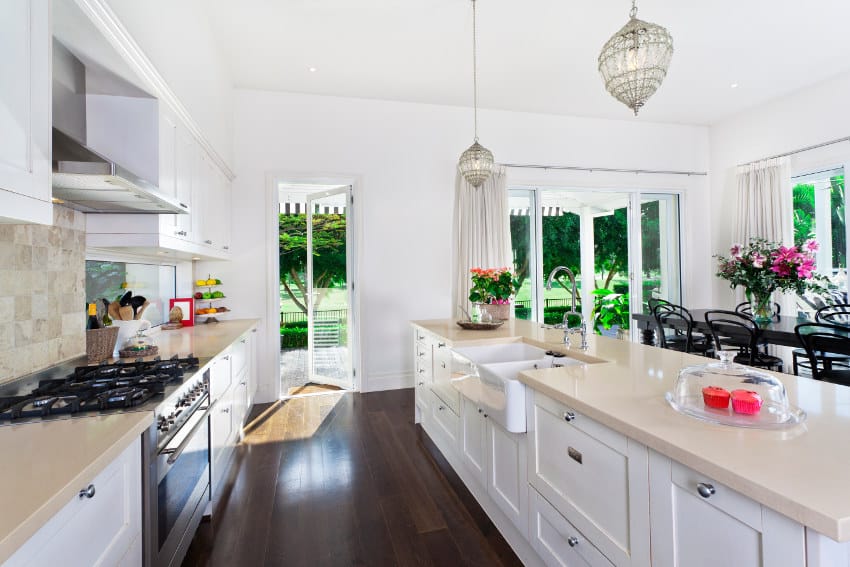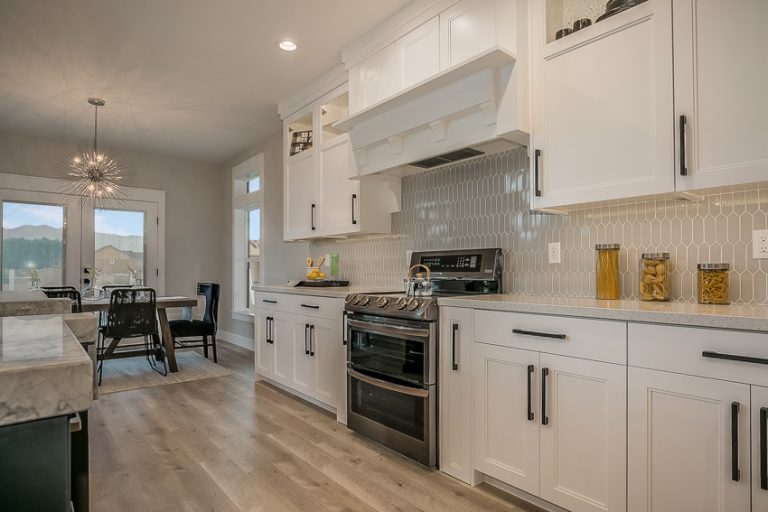Rustic Kitchen Island Ideas That Add Charm & Character
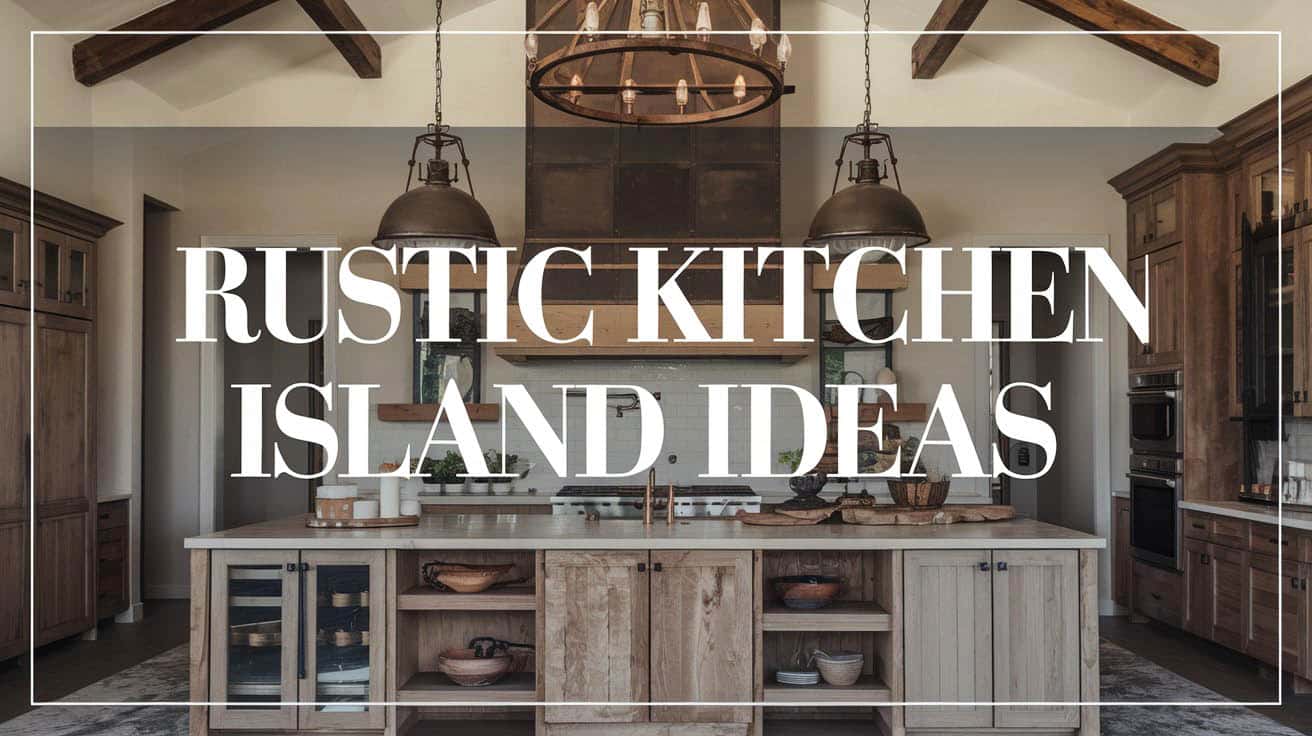
Rustic kitchen islands have particularly gained popularity. Whether in classic or contemporary kitchens, you will often see people add a rustic island to lend a hand in adding a different element to the design. Islands have evolved from their original function of simply being an additional working area and space divider into becoming a multi-use dining/bar area, and eventually, have become a popular focal point in modern layouts. Nowadays, you’ll find a kitchen island even in smaller floor plans. Their functions vary according to size, but because they are usually placed in the center of the kitchen, it’s easier to play around with their colors and finishes. Below are some examples of a variety of rustic kitchen island ideas you can take inspiration from.
Rustic Farmhouse Kitchen Island Design
When you talk about rustic kitchen islands, you will often hear about rustic farmhouse style. What is the farmhouse kitchen style? This is basically referring to farmhouse-inspired interiors, described for their natural and “rough” look. Wood is a common material for these spaces, and it often emanates a casual and homey atmosphere, where you’re not afraid to put things out of place and not perfectly aligned. These spaces usually borrow design details from farmhouses such as shiplap, natural wood finishes, stones and bricks, barn doors and black metal hardware.
Adding a few natural wood pieces in a rustic contemporary kitchen instantly gives this space a more authentic vibe. You can decorate the island with solid wood crossbuck end legs or other cladding to get the look you want. You can always your extra flooring material as cladding for your kitchen island, especially if it has no existing moldings that would make it difficult to attach. If you already have bold wooden flooring and don’t want to add more texture to your design, you can alternatively use bricks and still get a rustic-style island.
Rustic Island with Seating
The most popular use of rustic kitchen islands is as an extra seating/dining area. The are often paired with vintage-style or wood counter stools/seating. Rustic kitchen islands also often are a product of repurposed wood pieces, especially wood farmhouses or barn doors.
Before deciding on your kitchen island, though, take size into great consideration. There should be enough space around the structure for traffic flow, around 36 inches to 48 inches is ideal. If you have counter seats, make sure it has enough overhang to stow your seats in so that it doesn’t obstruct traffic flow.
If you want to keep your color scheme and want a more rustic feel to your island simultaneously, you can try using whitewash-painted cabinets. The style really stands out when combined with other features like open wood beams and decorative oven hoods with travertine backsplash.
If you already have rustic cabinets with solid wood adding a stained finish that contrasts against the dark wood colors of the island can be striking. Another alternative is to use a wood accent ceiling that offers additional drama and character to the space. If you don’t want your kitchen island to stand out too much but just want to add a little bit of texture and pattern to your space, consider getting wood planks/finishes that are close to the color of your current cabinets.
Rustic Wood Finishes
If replacing your whole kitchen island is not an option, you can also replace your countertop material with thick solid wood to give it that rustic look. You can think outside of the box with an island that is painted green, given a distressed wooden finish, and topped with a butcher block countertop with excellent results. Solid wood cabinets, granite countertops, and saltillo tile can help reinforce its rustic style.
Rustic islands that use butcher block countertops can be matched with other elements like flooring to provide a cohesive look. The island’s darker base and main cabinetry can contrast against the backdrop of elements like lighter tile backsplash, flooring, and counters. Another finishing technique you can apply to your wooden islands is a distressed technique, in which you use brush-on wood stain to give it a faux-aged look. You can also add a matte top coat, or a satin topcoat to give it your preferred finish.
DIY Reclaimed Wood
Freestanding kitchen islands have gained popularity recently. If you have enough space, it’s easy to simply purchase one. If you have unused solid lumber lying around, especially pieces that show signs of wear (but make sure it has no termites or permanent damage!), you can also DIY a rustic kitchen island.
A big consideration when getting ready to DIY a rustic island is the materials. Wood is a popular material, but when using weathered or repurposed lumber, make sure it is free from termites and has been treated to avoid future damage.
For the countertop, any material normally used can be used, such as granite, marble, soapstone, quartz, and solid surface. Alternatively, you can also use epoxy or concrete tops for a more industrial style, or simply use wood or butcher’s block for the countertop. Please take note that wooden countertops require more maintenance for wear and tear than stone, but if you’re willing to put up with maintenance they can be an attractive choice.
Some ideal wood types to use for butcher block countertops are the following: Oak, Hard maple, Teak, American Walnut, Hickory, Bamboo, Wengue, Cherry etc. Depending on your wood’s hardness, wooden countertops are typically around 3/4 inches to 6 inches. Depending on your intended usage for your wooden countertop, you may choose to seal it or not (if it’s mainly for storage or dining).
If you’re using it for food preparation, you need to seal it with oils or waxes, shellac and food-safe epoxy. Oils give the most natural finish, but remember that oil-sealed countertops need to be retouched at least once a month.
Rustic Industrial
Rustic Industrial style is also a common style used in rustic kitchens, and while some people might confuse this with farmhouse style, as it also has a “rough” look, you’ll find more prominence of “warehouse” materials such as metals, concrete, and exposed pipes. These are also often combined with natural finishes and wooden touches but tend to look more modern than farmhouse style.
If you don’t want to change the island itself, why not place an add-on to your counter and create a bar counter from repurposed barn door wood? Many rustic kitchen ideas start by incorporating industrial elements such as weathered finishes, pipe foot rests, and blackened metal to complete the look.
Modern homes with light-neutral color palettes look especially good with dark-stained wooden finishes and add a rustic-industrial aesthetic to the space. Dark, vertical wood planks can easily be installed on the front and sides of existing kitchen islands. Because this layout uses repurposed weathered wood, the variety of tones adds an extra layer of depth and texture to the counter.
Rustic Cart
You will often see small freestanding kitchen islands or carts, which are often available for buy from retail stores and are the perfect size for smaller floor plans. These can be a great way to bring in a small piece of the rustic style to your design without overwhelming the space. Freestanding islands have recently gained popularity for their unique look and their mobility. You won’t need to worry about missing your favorite furniture piece when you can take it with you when you move.
If the layout is quite small, the use of a small, freestanding portable kitchen island is a viable solution. It does not have to have a closed base, so the open legs/shelf at the bottom make it look light and won’t visually block the flow of the floor plan.

